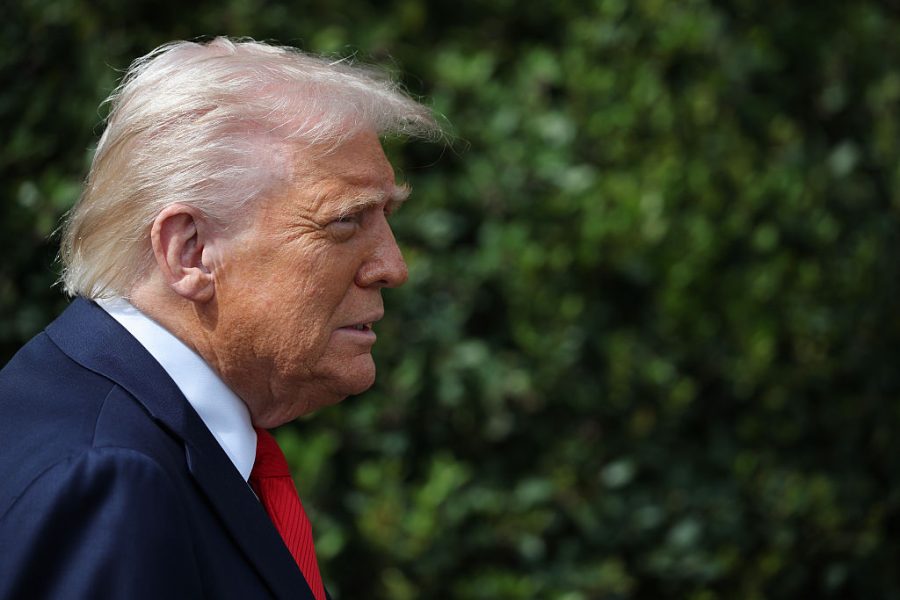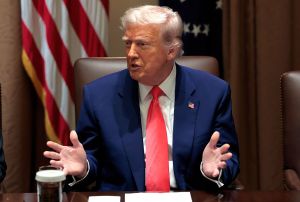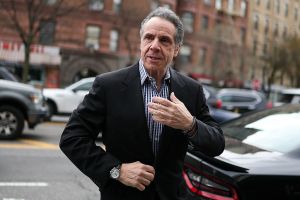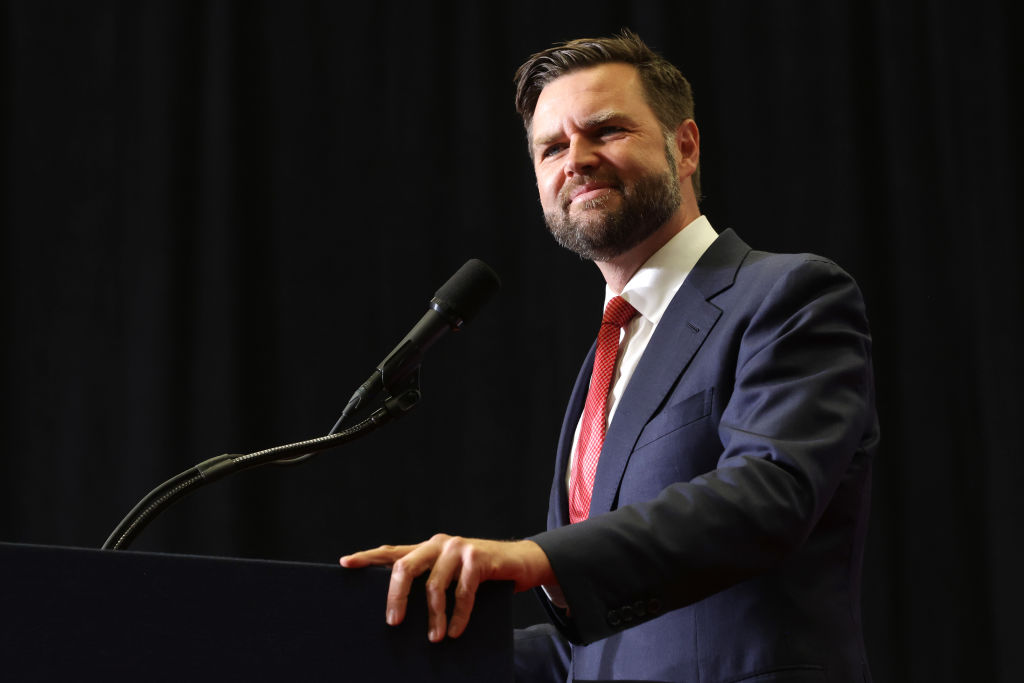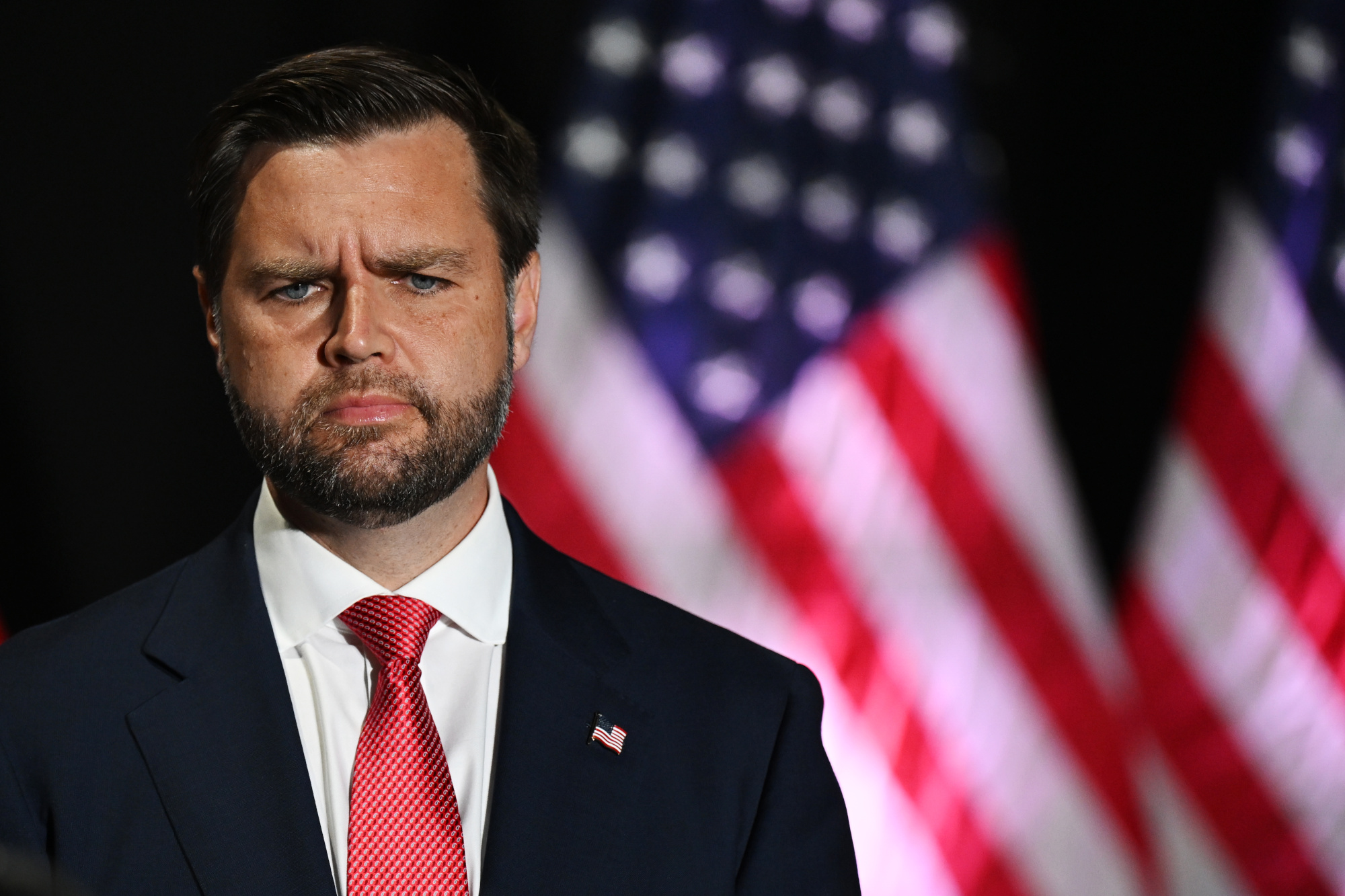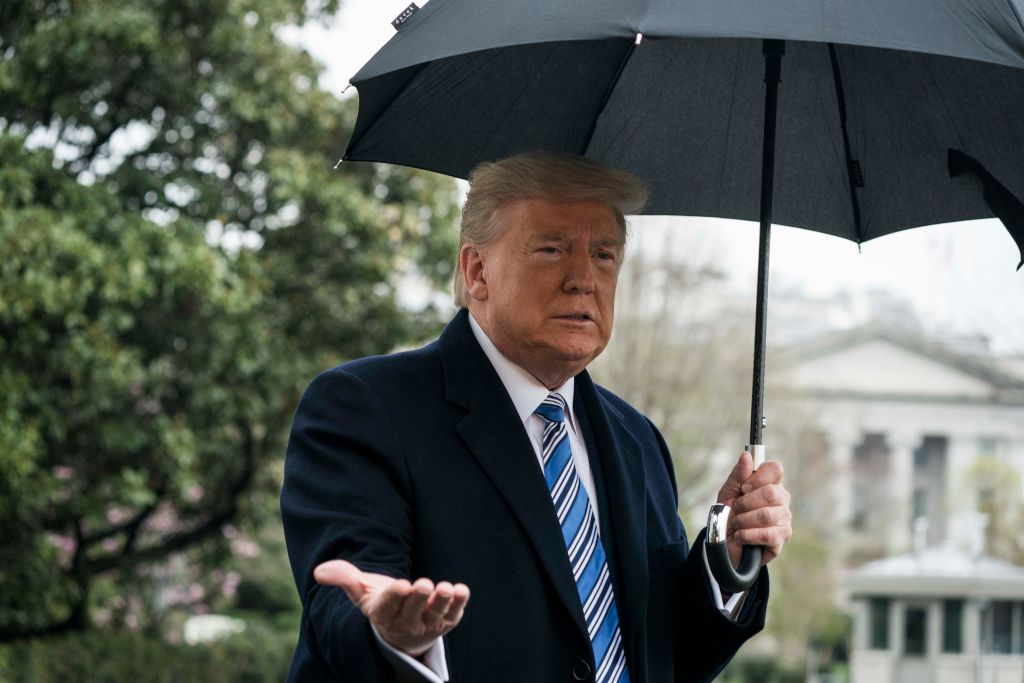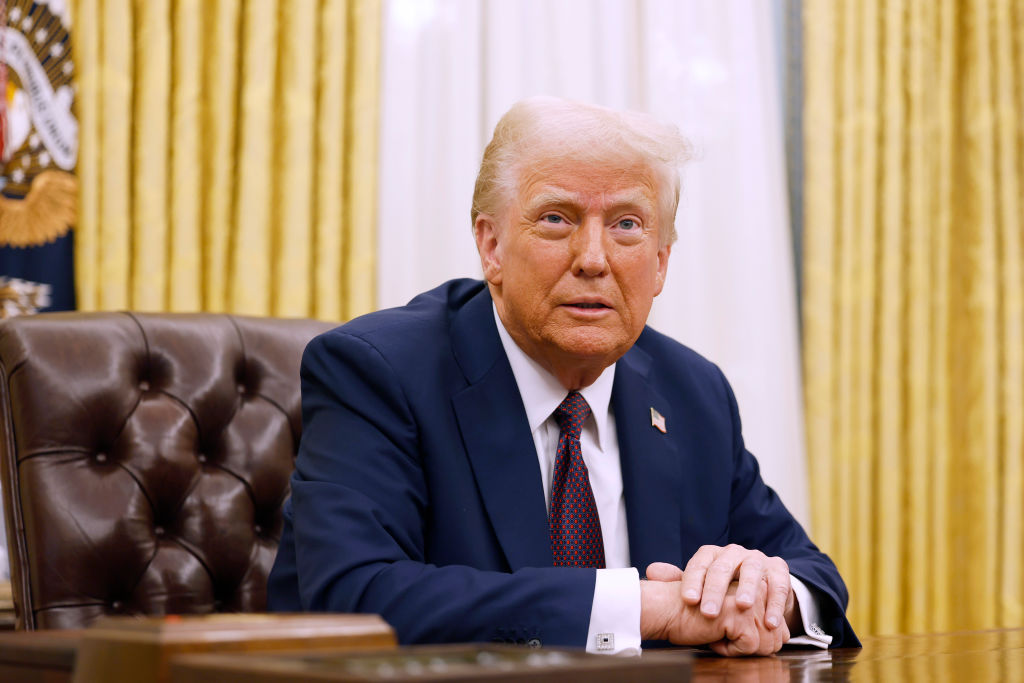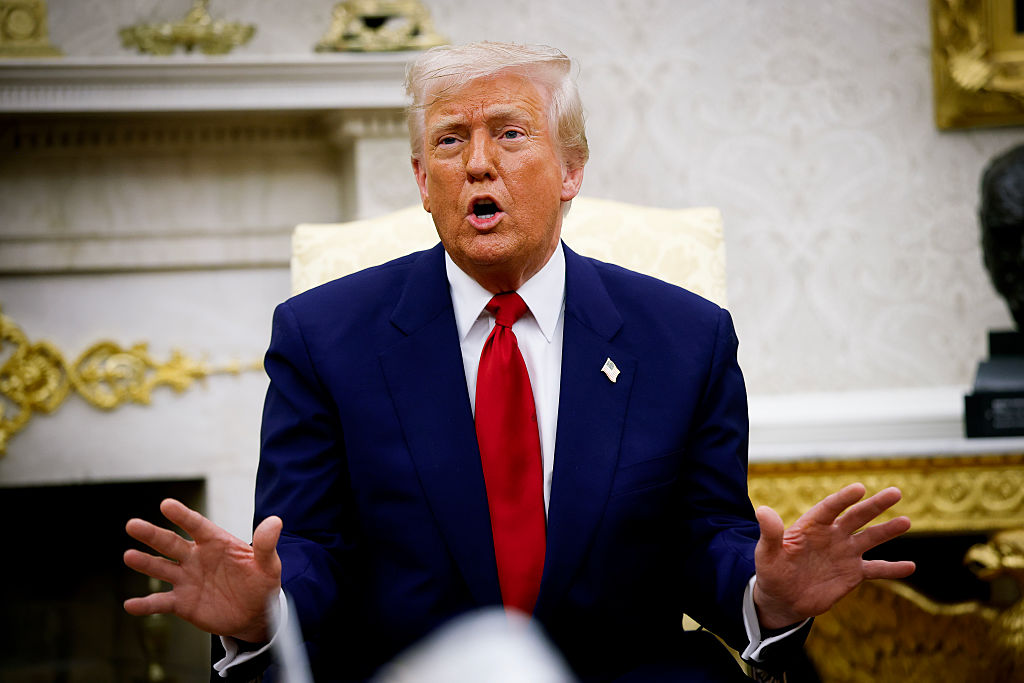A recession now looks even more certain for the United States. Output has flattened. The chaotic implementation of Donald Trump’s tariff regime has left businesses bewildered. And consumers will soon be facing huge price rises. Of course, the US might well emerge in better shape at the end of it. The trouble is, President Trump has done nothing to prepare the voters for the pain ahead – and he will find a downturn very tough politically.
It is probably one of the less controversial calls Goldman Sachs has ever made. The bank’s chief executive David Solomon argued yesterday that the “prospect of a recession has increased,” with plenty of signs that output was slowing down both in the US, and around the world. Likewise, JPMorgan now estimates there is a 60 percent chance of a US recession this year, while HSBC puts it at 40 percent.
It is not hard to understand why. The overnight imposition of huge tariffs on imports into the US has thrown supply chains into chaos, and will lead to big price rises in the shops, while at the same time slowing demand in some of America’s main export markets. It will be difficult for the economy to expand amidst disruption on that scale.
Of course, there may be some mitigating factors. J.D. Vance has suggested that a trade deal between the US and the UK may be signed very soon. “We’re certainly working very hard with Keir Starmer’s government” on an agreement, he said in an interview with UnHerd today. If that reduces some of the tariffs, that will help at the margins. Against the size of the US economy, however, nothing that happens with the UK will make a great deal of difference. A recession still looks the most likely outcome for America.
True, you can argue that it is well worth it. Trump’s tariffs are designed to re-order the global economy. They are meant to reindustrialize the American heartland, restore blue-collar jobs, bludgeon other countries into opening up their markets, and, perhaps most of all, end the dependency on Chinese manufacturing, so that the US no longer relies on its main geo-political adversary for survival. Against a prize of that magnitude, a couple of quarters of falling output should not necessarily prove a very big deal.
Here’s the problem, however. President Trump has not made that argument. He hasn’t delivered any stirring speeches on how the country will endure some short-term pain to secure its future, or how a year of weakness will prepare the ground for a revival in the years ahead. Instead, he has just told everyone he will do “some great deals”, and that everything will be better immediately. Even worse, Trump is a feel-good politician, who likes to boast about how “everything is going great.”
Trump has four years left in the White House, and (probably!) can’t run for reelection. Even so, a recession is going to be very tough for him politically, especially as he is its main author – and it remains to be seen whether he can ride it out.



